One of the easiest and most economical ways to boost your health is FERMENTING! In stressful times when your digestion is under attack from processed food, undisclosed additives, and GMO’s, these old-fashioned fermented foods like sauerkraut and yogurt can offer your gut a life-saving break. Fermented foods are high in fiber. They contain more beneficial bacteria than most probiotic supplements, and they’re cheaper than store-bought pills. Make them easily in a variety of flavors, just 2 tablespoons of fermented food at a meal can help restore your internal balance. Here are 12 BIG advantages of fermented food:
- Improves your energy level, mood, mental health, and brain power.
- Reverses negative effects of gut-killing chemicals such as GMO’s, pesticides, antibiotics, and vaccines.
- High fiber activates and restores your intestinal flora, promoting good bacteria, clearing out gunk and harmful microbes.
- Strengthens the immune system’s ability to defend you from all illnesses.
- Reduces cravings for sugars and carbs, a global pandemic.
- Easy, quick and fun to make.
- Economical. Use any raw vegetable of fruit.
- Heals leaky gut, bowel disorders, SIBO, constipation, and inflammatory bowel disease.
- Lowers risk of cancer, diabetes, obesity, autism, Parkinson’s, Alzheimer’s disease.
- Eliminates digestive discomfort, after-dinner heaviness, and bloating.
- Controls bacterial ailments such as acne, dental plaque, candida, cavities, bad breath.
- Promotes healthy skin, improves eczema and psoriasis.
There is a growing incidence of chronic diseases that are linked to gut bacterial imbalance. Some of the most common are Gluten or Dairy intolerance, Mood swings, Indigestion, Arthritis, Depression, Anxiety, Constipation, Fibromyalgia, joint pain, Bloating, Flatulence, IBS, and bad breath. The list of gut-related issues also includes Autism, Parkinson’s, Neuropathy, Obesity, Diabetes, Alzheimer’s, High blood pressure, Cancer, and ADHD. Studies show that many auto-immune diseases are accompanied or exacerbated by bacterial imbalance in the gut, including Rheumatoid Arthritis, Type 1 Diabetes, Crohn’s disease, Grave’s disease, Multiple sclerosis, Hashimoto’s disease, and Lupus. With such a formidable list of gut related diseases, you’d think doctors would be prescribing fermented vegetables at every turn. And many of them do. But alas, the connection between our gut micro biome and other important body functions sometimes eludes us.
There’s a wildly diverse population of critters in your gut. Some are good and some are BAD! Simply put, fermented foods help to promote the good bacteria and clear out the bad ones. Fermented foods will give your gut health a complete overhaul, strengthening your internal defense systems with good bacteria which then can clear out harmful microbes. Just one-quarter to one-half cup of fermented vegetables per day can have a dramatically beneficial impact on your health.
Our ancestors enjoyed fermented condiments and vegetables with every meal. It was a traditional way to add flavor, it preserved foods for months, and it promoted healthy intestinal balance. With the advent of refrigeration in the 1930’s, fermented foods declined in popularity. We can still buy pickles, sauerkraut, and cranberry sauce in the market, but they’re not fermented any more. I think it’s time to revive the old tradition!
Gut bacteria live on the tiny intestinal villi, which are small, finger-like projections that form the wall of your small intestines. The small intestines sort nutrients from fiber and indigestibles, while the tiny villi filter molecular nutrients directly into your bloodstream. The good bacteria have many functions such as digesting your food for you, keeping your intestines clean, creating nutrients you cannot produce yourself, and removing pathogenic invaders. Wow!
Before the advent of industrial farming with its GMO’s and pesticides, our crops were raised on small farms with healthy soil rich in nutrients and beneficial microbes. These good bacteria were always present in our environment and in our gut. Our grandmothers didn’t give a thought to their gut micro biome. However the past 50 years have brought us artificially nourished plants raised with toxic chemicals which kill that beneficial bacteria. Even worse, the most recent 30 years have introduced GMO’s and powerful pesticides and herbicides into our gut. These compounds, even in tiny amounts, devastate the human micro biome, which is the root of our immunity and resilience to disease. For example, GMO foods actually block the lymphoma-defending microbes in the gut, giving free reign to cancer. Even worse, Monsanto’s herbicide Glyphosate alters the DNA in certain essential bacteria, weakening our digestion and immune function. Glyphosate and gut imbalance has been linked to growing incidence of autism, obesity, diabetes, Parkinson’s, Alzheimer’s disease, and leaky gut. It’s no wonder these diseases are rising exponentially. This is the reason why nowadays, fermented foods are more important than ever. We need to promote a healthy internal microbial environment every day to protect our health.
Fermented foods have recently gained popularity thanks to the teachings of Dr. Weston A. Price. While it’s sort of old-fashioned and perhaps not as sexy as pizza, research shows that it offers overwhelming benefits to gut, brain, and body health. Fermenting promotes essential beneficial bacteria such as Lactobacilli and Bifidobacteria. It’s an rich source of natural probiotics for vegans, as many fermented foods are plant-based. Foods are submerged in a salty brine during fermentation, which kills off dangerous, pathogenic bacteria. The good bacteria break down lactose, sugars and starches in the food, making your digestion easier. And once they reach your gut, they continue to help break down food and keep out nasty bacteria like E. coli and C. difficile.
What are the Best Fermented Foods?
Enjoy 2 tablespoons of fermented foods at every meal. You have so many options – far more than just yogurt and kimchi! Here are the top fermented foods you should eat.
1. Apple cider vinegar
Great for salad dressings, unfiltered apple cider vinegar helps control blood pressure, cholesterol, diabetes and even weight loss. Use just a small bit each day in water, in sauces, or dressings.
2. Fermented Veggies – hundreds of flavors!
You have myriad options here. See my recipes below. Have you ever tried grated red cabbage, turnip, and fennel seed? How about combining grated bok choy, carrot, and radishes? Another favorite is red beet, carrot, ginger which turns out bright red. The combinations are endless, and it’s a great way to clean out the fridge!
3. Fermented Fruits
Try fermenting sliced apples with ginger for a few days. Think about grating mango, carrot, and goji berries! Yum! Cranberry relish was once fermented – here’s how to make it: Throw cranberries, apples, ginger, and some orange peel in your grater, and ferment it for 7 – 14 days. WOW! Oh, and try my Major Grey’s Chutney recipe below, with mango, carrot, ginger and exotic spices.
4. Sauerkraut
Sauerkraut is German for “picked cabbage”. So easy to make, this is the simplest fermented recipe with cabbage, salt, and water. Your flavor will depend on what kind of cabbage you use – Savoy, Red, or White!
5. Kimchi
Spicy Korean fermented cabbage is similar to sauerkraut. You can also buy this in many markets. However if you’re intolerant to nightshades, better pass on this one, as it contains plenty of HOT cayenne pepper.
6. Pickles
Pickles are made from cucumbers. When they are fermented and alive, they’re a great introduction to fermented foods. Pickles made by living fermentation are a delicious snack, great for aiding digestion and a strong immune system.
7. Kombucha
Made from tea, water, sugar, yeast, and a starter, kombucha beverage has become wildly popular for its probiotic qualities. Its fizzy bite is a great substitute for soda.
8. Yogurt
Yogurt has many benefits, mostly due to its rich probiotic content. Brands of yogurt that contain billions of live active cultures are the best to support digestion. Raw, unpasteurized yogurt is ideal if you tolerate dairy. The problem is there is huge variation in the quality of commercial yogurts. When buying yogurt, look for these four things: 1) goat’s or sheep’s milk is best as it is more digestible than cow’s milk. 2) Look for grass-fed, 3) Look for organic so you’re not eating GMO’s or pesticides like glyphosate, and 4) Check the ingredients to make sure it’s plain with no additives and especially no sugar. Yogurt that contains sugar is counterproductive, as sugars feed pathogenic bacteria and contribute to – you guessed it – bad bacteria!
9. Kefir
Kefir is much like yogurt, except that it’s more liquid, so you can consider it a beverage. The term kefir originated in Russia and Turkey and means “feeling good”. Gentle on the digestion, it has a tart flavor like yogurt. Unfortunately commercial varieties are often mixed with sugar, which is counter productive. Look for plain living kefir made from organic cow or goat’s milk.
10. Miso
Miso is a traditional Japanese paste found in many of their traditional foods. If you’ve ever been to a Japanese restaurant, you may have seen their miso soup. It is made by fermenting soybean, barley or brown rice with koi, a beneficial fungus. Miso can be made into a soup, spread on crackers, in enjoy as a spread just about anywhere. But don’t boil it. Boiling kills the beneficial bacteria. Just make the soup, allow to cool a bit, stir in the miso last and serve. Click here for a great Miso Soup recipe.
My Favorite Fermented Recipes:
Fermented Veggies 101
Fermented Mango Chutney aka Major Grey’s
Fermented Mango Pear Goji Chutney
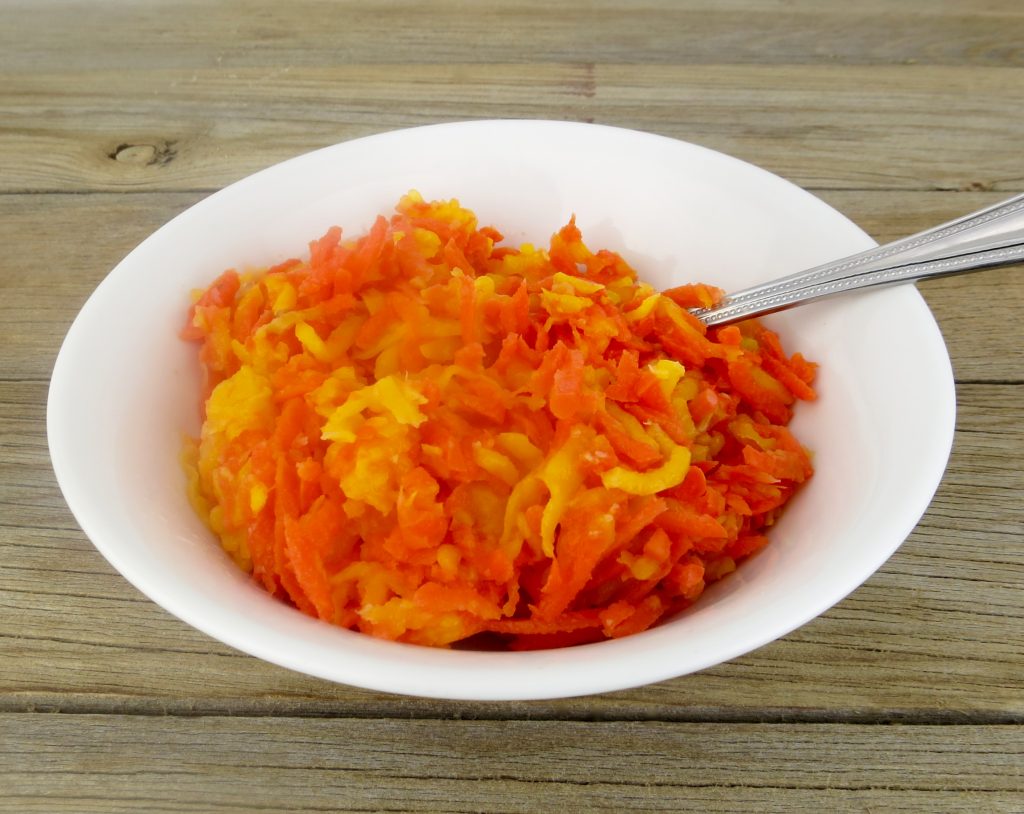
Fermented Mango Carrot Relish
Holiday Spiced Beet Elixir
Authentic Miso Soup is Alive!
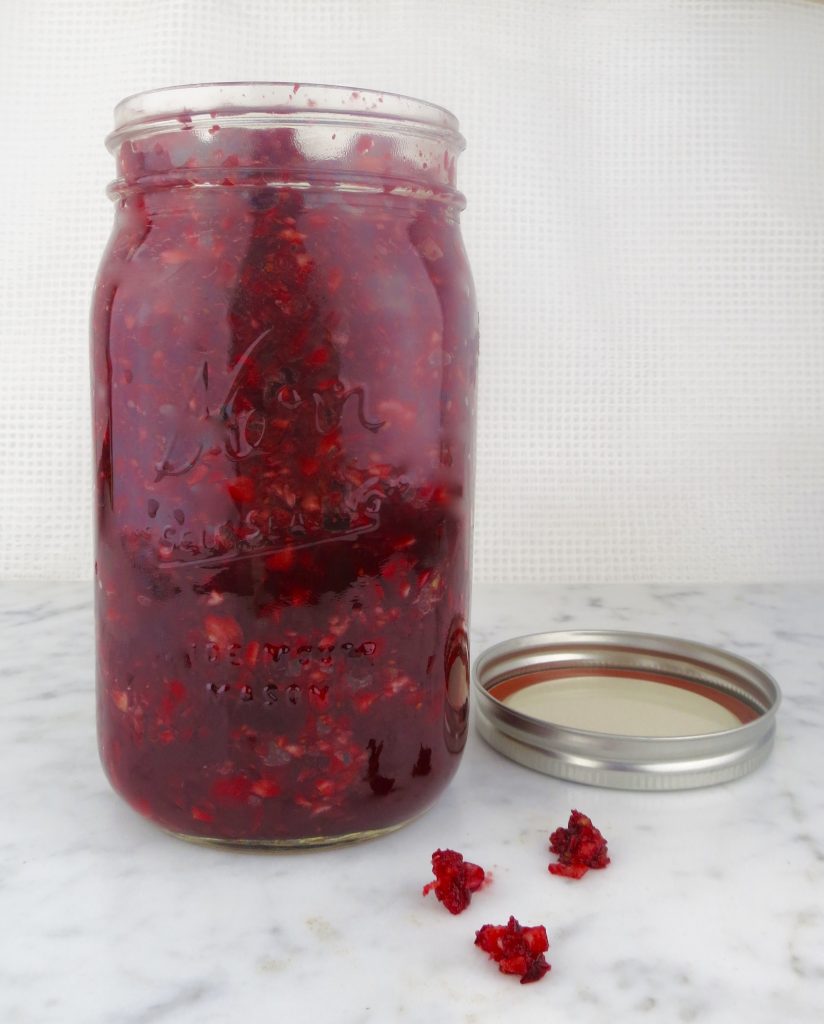
Fermented Cranberry Orange Sauce
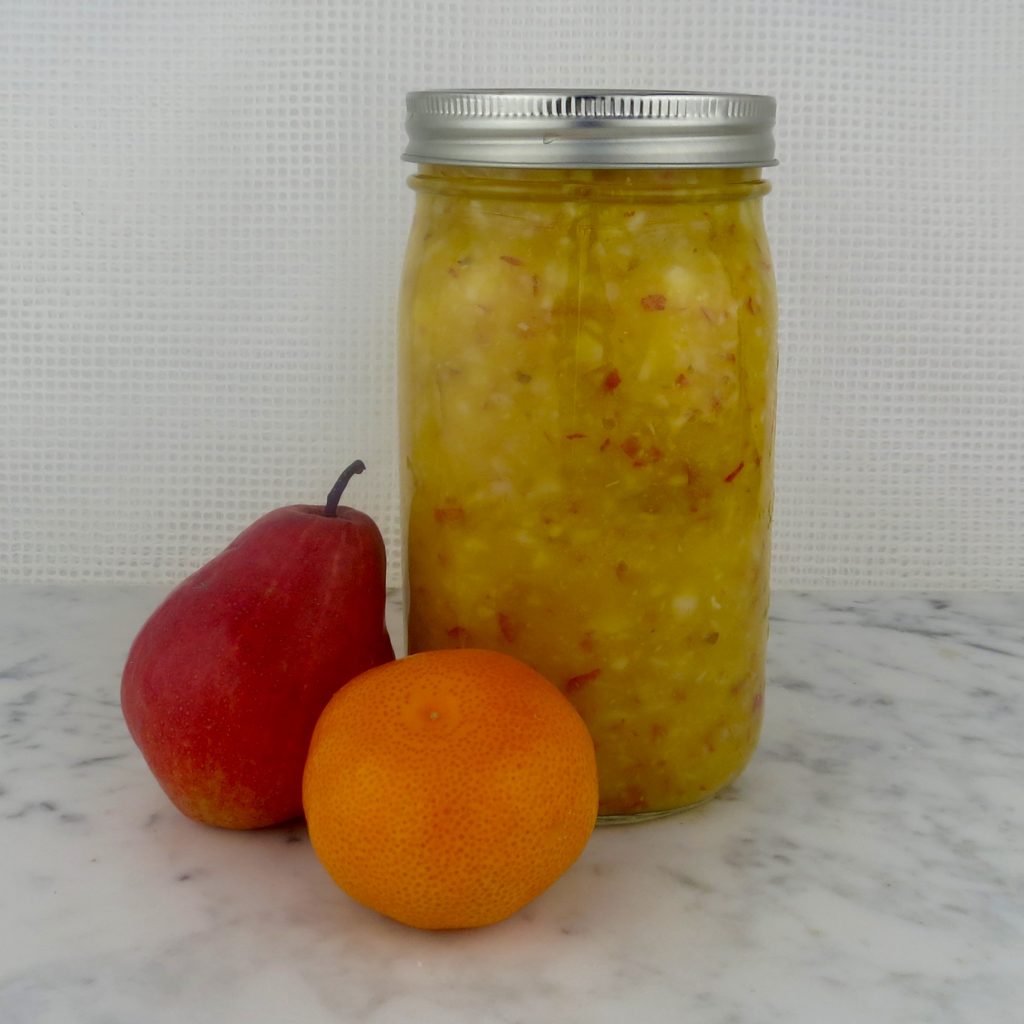
Pear Ginger Tangerine Relish
Homemade Coconut Yogurt
Berry Parfait with Coconut Kefir
What is your favorite fermented food? Share your tips and recipes in the comments below!
References:
- https://liveto110.com/transcript-166-glyphosate-and-how-to-detox-it-with-dr-stephanie-seneff/
- https://people.csail.mit.edu/seneff/2016/Glyphosate_V_glycine_analogue_2016.pdf
- Vaughn AR1, Sivamani RK2. Effects of Fermented Dairy Products on Skin: A Systematic Review. J Altern Complement Med. 2015 Jun 10.
- Carasi P1, Racedo SM2, Jacquot C2, Romanin DE3, Serradell MA4, Urdaci MC2. Impact of kefir derived Lactobacillus kefiri on the mucosal immune response and gut microbiota. J Immunol Res. 2015;2015:361604. doi: 10.1155/2015/361604.
- Cetojevic-Simin DD, Bogdanovic GM, Cvetkovic DD, Velicanski AS. Antiproliferative and antimicrobial activity of traditional Kombucha and Satureja montana L. Kombucha.J BUON. 2008 Jul-Sep;13(3):395-401.
- Szaefer H1, Krajka-Ku?niak V, Bartoszek A, Baer-Dubowska W. Modulation of carcinogen metabolizing cytochromes P450 in rat liver and kidney by cabbage and sauerkraut juices: comparison with the effects of indole-3-carbinol and phenethyl isothiocyanate. Phytother Res. 2012 Aug;26(8):1148-55. doi: 10.1002/ptr.3692.
- Park KY1, Jeong JK, Lee YE, Daily JW 3rd. Health benefits of kimchi (Korean fermented vegetables) as a probiotic food. J Med Food. 2014 Jan;17(1):6-20. doi: 10.1089/jmf.2013.3083.
- https://www.ncbi.nlm.nih.gov/pmc/articles/PMC3945755/
- Journal of Clinical Psychology January 1, 2014
- Journal of Nutrition March 1, 2005: 135(3); 431-436
- Docsopinion.com October 5, 2015
- Cambridge Journal Blog February 16, 2016
- Uproxx February 17, 2016
- New York Times February 15, 2016
- British Journal of Nutrition doi:10.1017/S0007114516000349 (PDF)
- British Journal of Nutrition doi:10.1017/S0007114515005073 (PDF)
- Medical News Today November 25, 2016
- Cell November 17, 2016; 167(5): 1339-1353.e21
- Epoch Times November 28, 2016
- Scientific American November 23, 2016
- Newsweek November 24, 2016
- http://articles.mercola.com/sites/articles/archive/2015/12/15/glyphosate-modern-diseases-pathway.aspx
- https://www.ncbi.nlm.nih.gov/pmc/articles/PMC4425030/
Are any of these nasty critters in your gut? Have you had your fermented foods today?




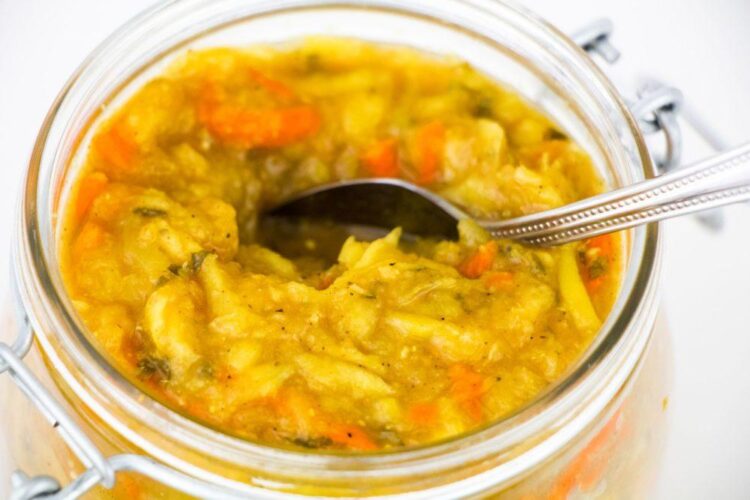



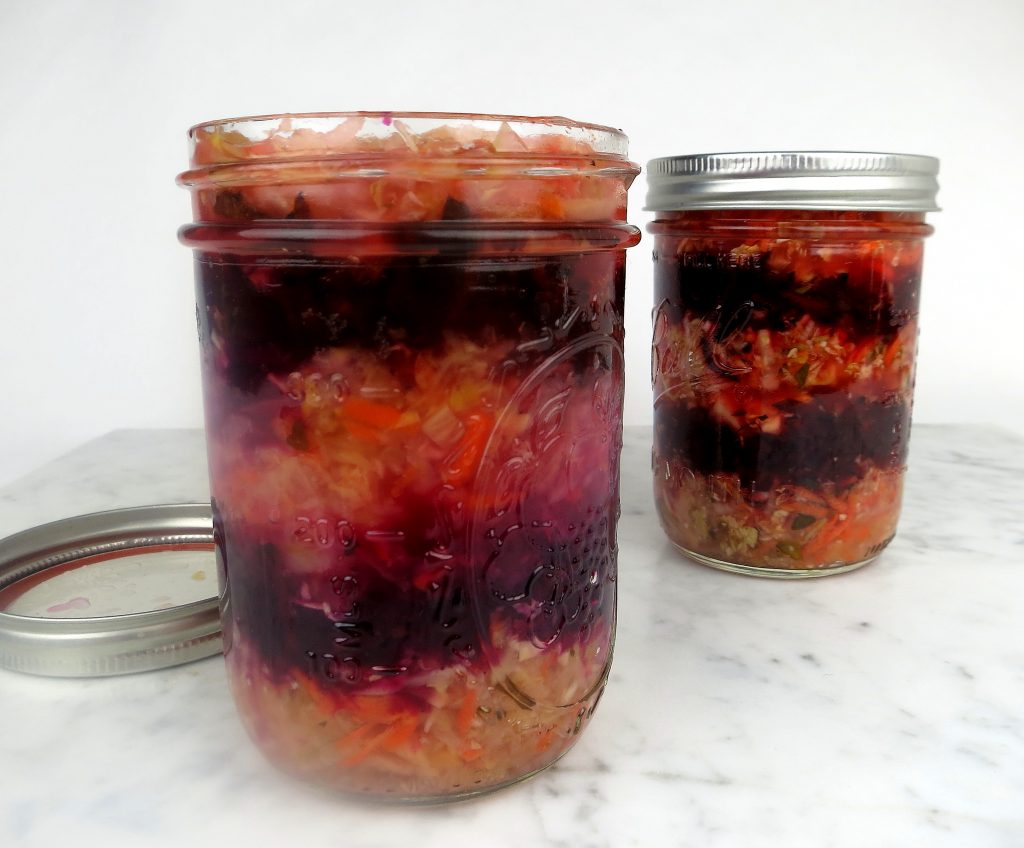
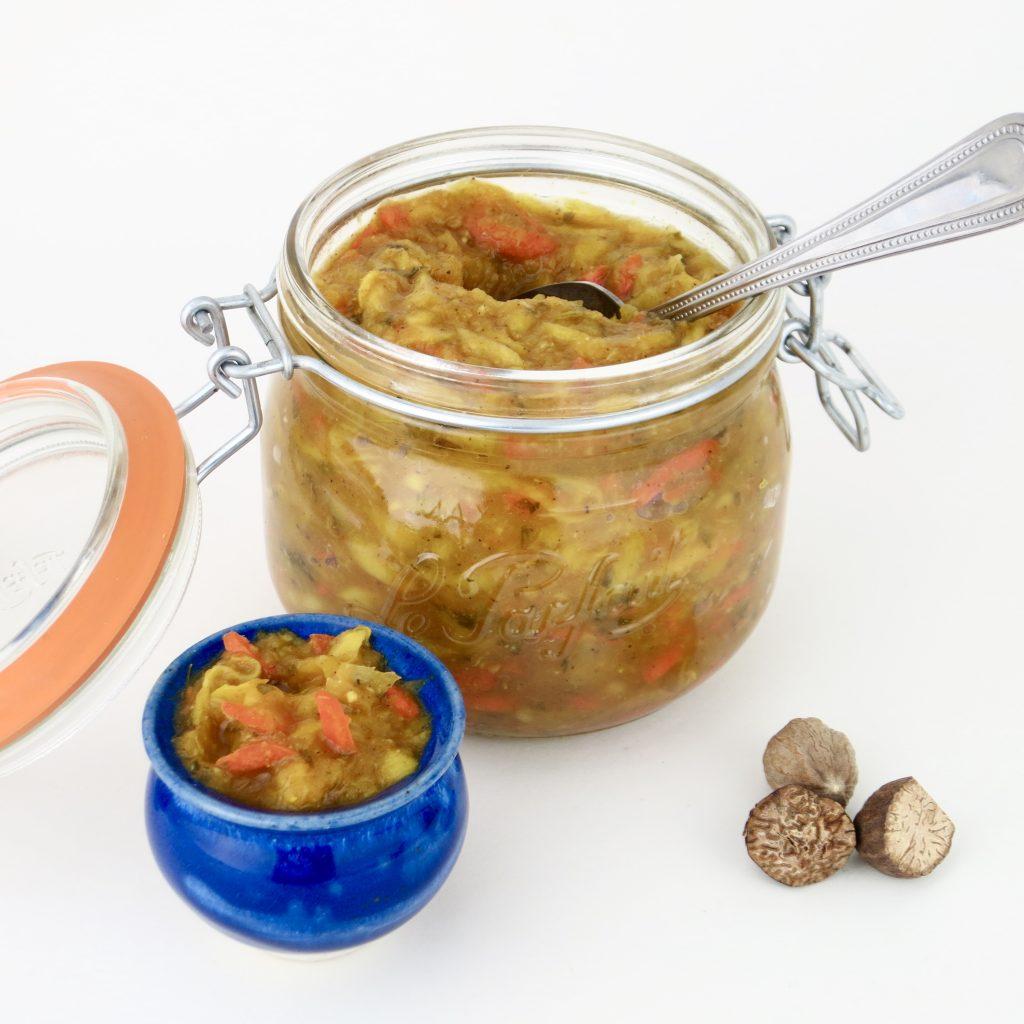
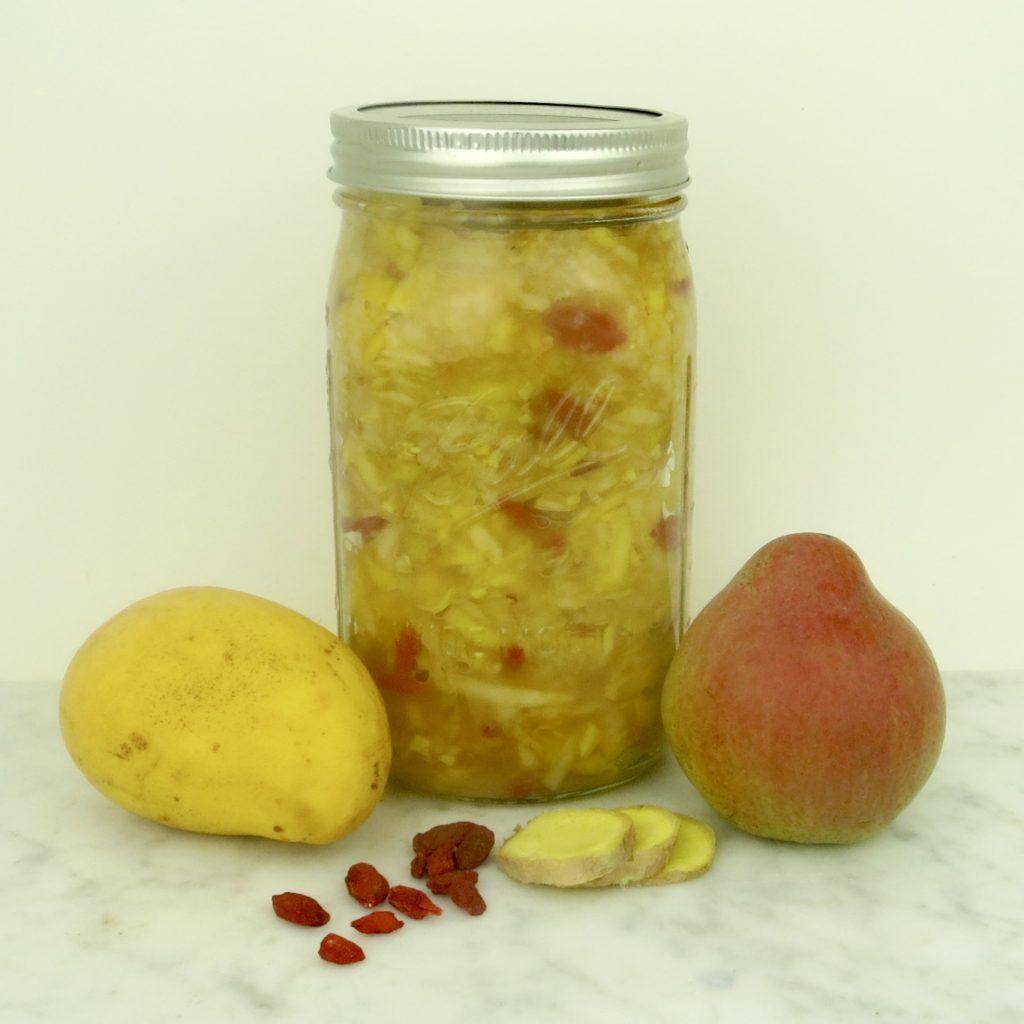
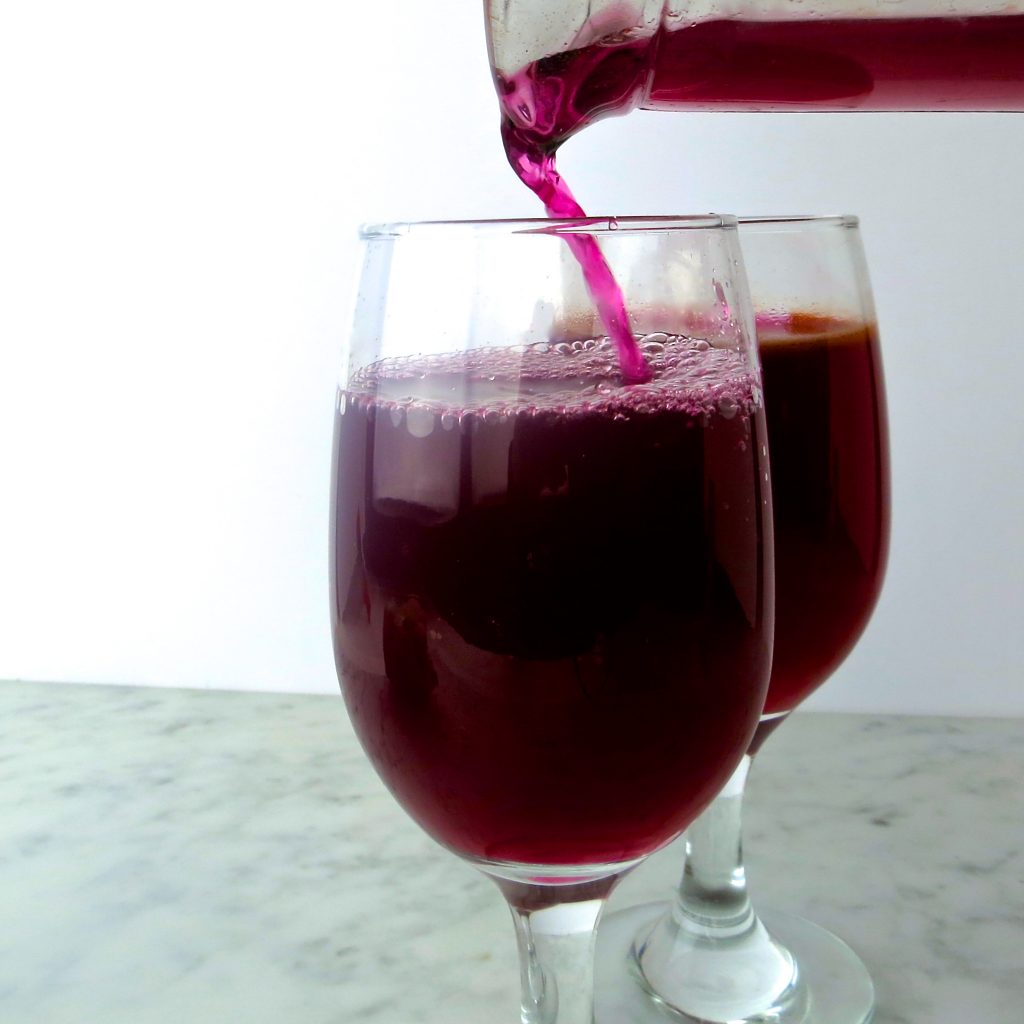
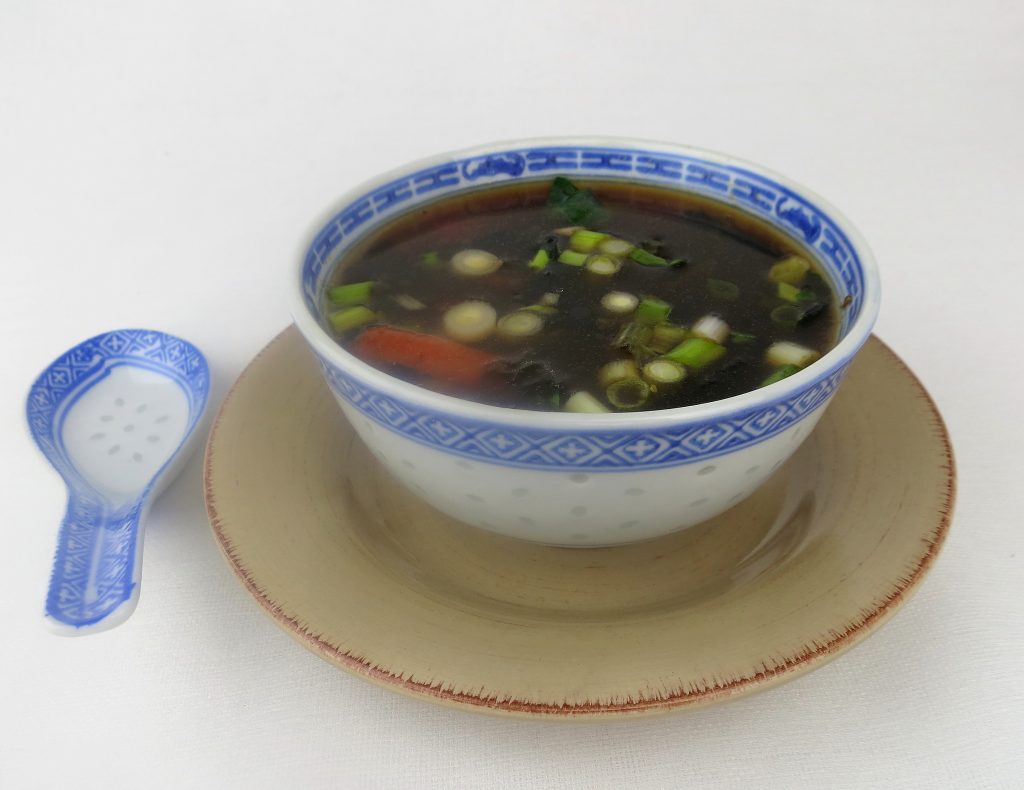
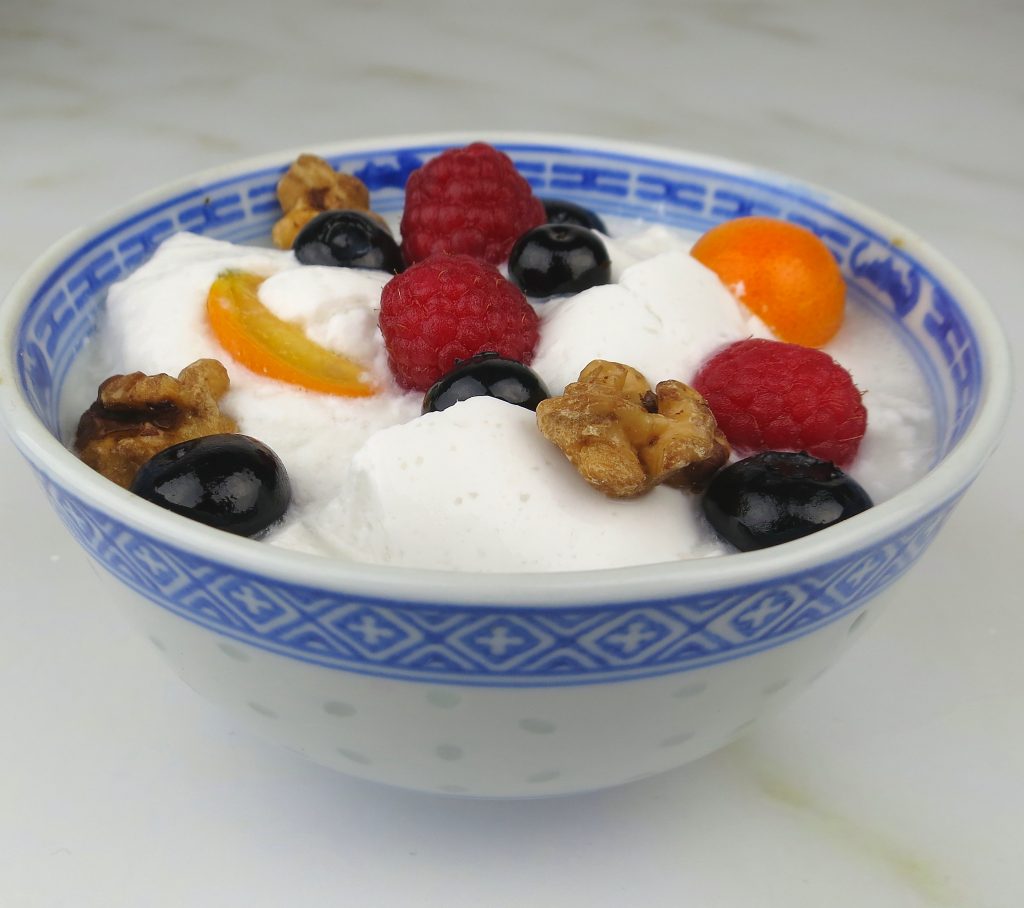


2 Replies to "Top Ten Recipes for Fermented Foods"
Dianne June 10, 2022 (11:49 am)
I make sauerkraut or kimchi all the time for health, but get bored with it. These recipes give so much more variety. They look delicious and can be made with fruits too, not just cabbage. You give a great assortment including juice, miso, relish, chutney or yogurt. It’s like Christmas in the Fermented World! I appreciate you so much for your gifts of so many tempting foods filled with vibrant health. Thank you, Jane! Can’t wait to try these.
Jane Barthelemy June 18, 2022 (5:43 pm)
Hello Diane, Thank you for your kind words. Yes, I LOVE fermented foods. Happy to insert a little variety and joy into your day! Best wishes for your delicious health! Jane